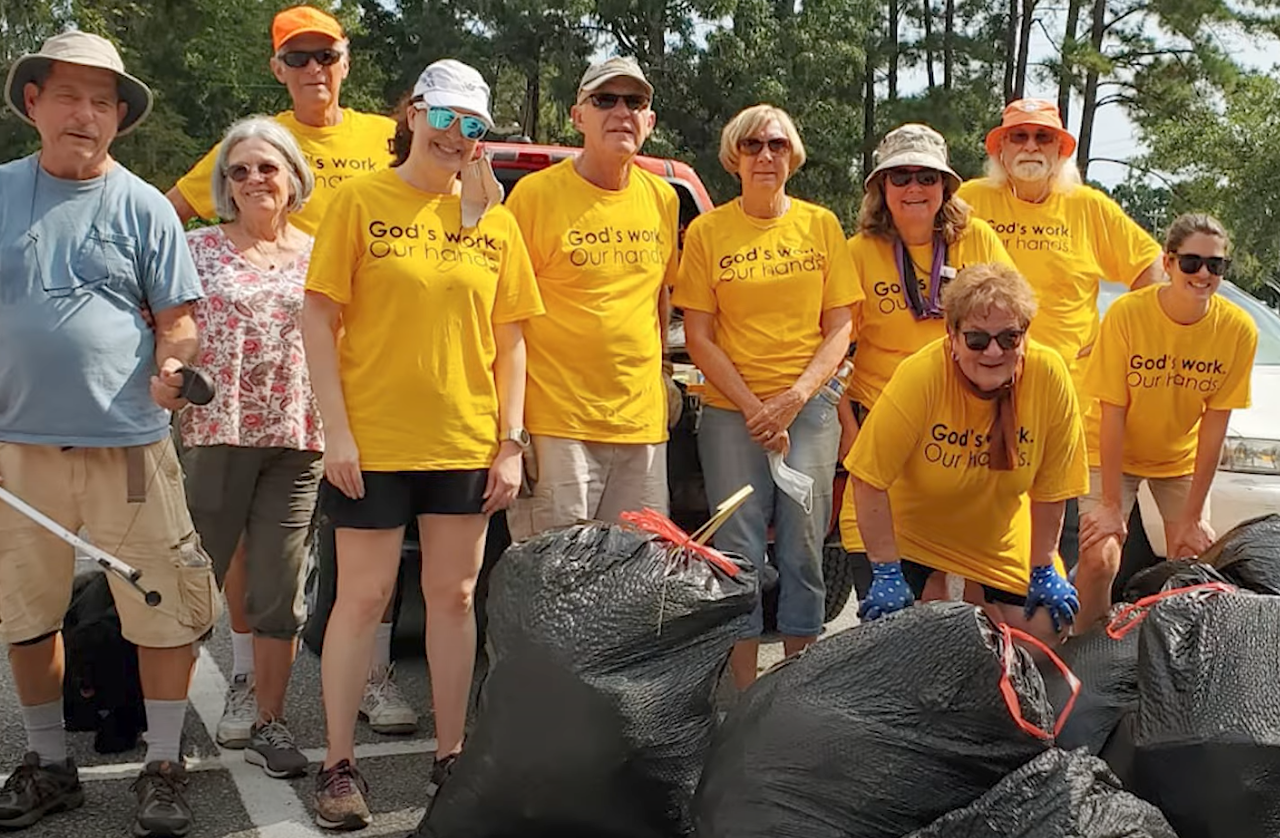News
The Unplanned Outcome of God’s Work Our Hands
September 19, 2023

by Sunni Richardson
God’s Work Our Hands (GWOH) is such a great Churchwide initiative and to think we have been at it for 10 years. It is celebrated as an opportunity to come together as one church and explore one of our most basic convictions as Lutherans which is to serve and love our neighbor.
Tons of work gets done. People come together in gold shirts which provides visibility. Hands are blessed and prayers offered. Work is usually accompanied by good food. We make a difference. We can all say “well done faithful servants”!
Every good project/program should be grounded in 3 basic steps – preparing/prepping, doing, and reflecting. If you did GWOH earlier in September you can check the preparing/prepping and doing boxes. What about the reflecting box?
Jesus was the best at setting the stage for a learning experience and then letting it unfold. He healed the stranger on the road, fed 5000, brought Lazarus back to life, and washed the feet of the disciples. The people watched, wondered, and marveled. Then he would drop the reflection question. He would push people to rewind the scenario, ask questions, see from the other side, put themselves in the situation and name the moral of the story. He was checking the reflection box.
As you move into October with the Go and… Ask theme consider using these questions to debrief your GWOH work.
- What did you learn from your neighbors as you were serving?
- There is a lot of talk about being in relationship with our neighbors. What does “relationship” mean to you? What does it look like? How does it feel?
- Accompaniment is grounded in the word “with”. Charity is often an action “for” someone. Consider how these two concepts playout in the serve projects your congregation engages in throughout the year.
- What unplanned outcomes did you experience with your GWOH work? What was the conversation when you gathered for hotdogs? What stories did you hear the following Sunday? Did you hear empathy and new understanding or grumbling about the work and negative comments about neighbors?
- What’s next? We all know the story line “give someone a fish and they have food for today, teach them to fish and they have food for tomorrow”. Take it a step further who owns the fishing pole and the needed supplies, who owns the fishing rights to the pond, and who sets the rules for how many fish one can catch to feed your family? Ponder how this scenario applies to your projects. How can you change the story unfolding in your community?
- What’s your next faithful action step?
- What is your prayer as you continue to reflect on your GWOH projects?
Thank you for being part of God’s Work Our Hands Day and the many ways you have found and will continue to discover as you accompany individuals and groups in your community and beyond. Thanks be to God for helping us see opportunities to be in relationship with our neighbors.